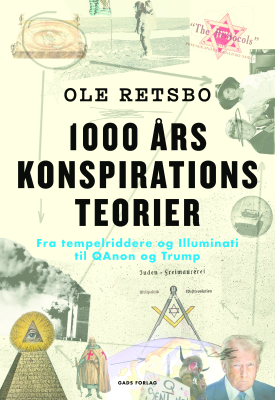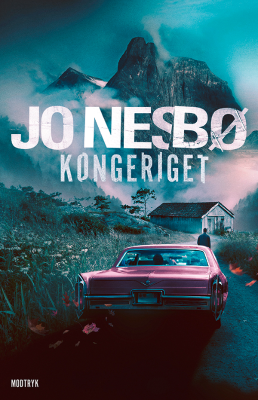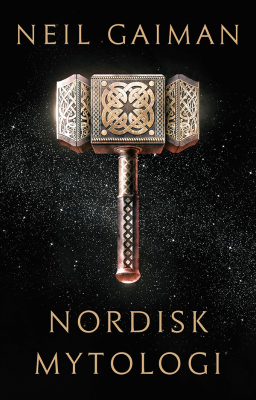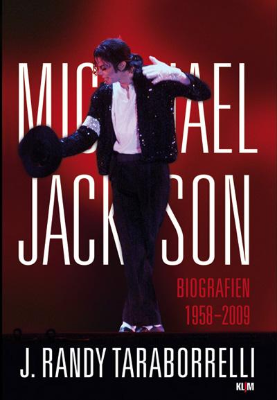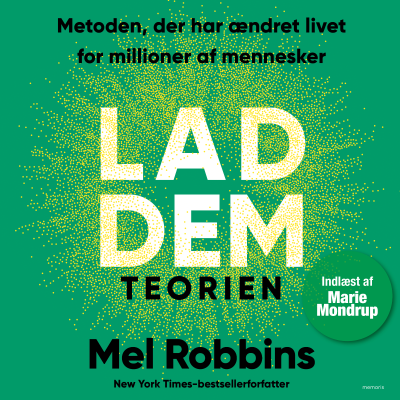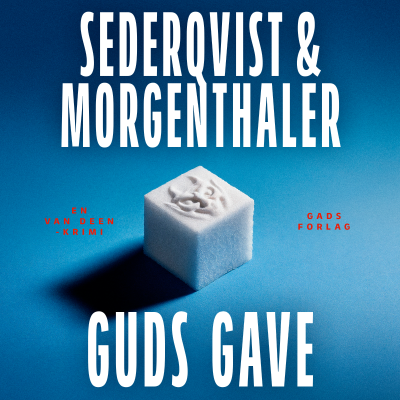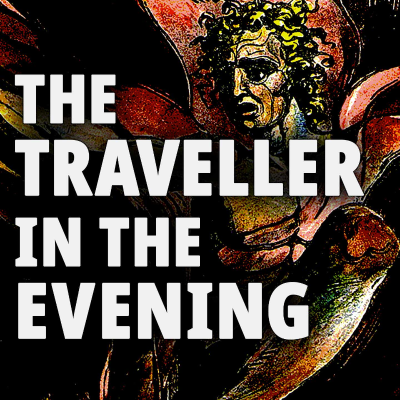
The Traveller in the Evening
engelsk
Historie & religion
Begrænset tilbud
2 måneder kun 19 kr.
Derefter 99 kr. / månedOpsig når som helst.
- 20 lydbogstimer pr. måned
- Podcasts kun på Podimo
- Gratis podcasts
Læs mere The Traveller in the Evening
Reflections on William Blake, Surrealism, ecology, radical theology and politics. www.travellerintheevening.com
Alle episoder
22 episoderGeorges Bataille and the Surrealist Blake
We have long argued that Blake was a proto-Surrealist, but critics are confused about how Blake fits into the story of Surrealism and how they received him. The ‘dissenting Surrealist’, critic, philosopher, pornographer, anthropologist and ‘metaphysician of evil’, Georges Bataille adopted Blake as the presiding spirit of his later work, which puts the sacred and religion at the heart of politics. Breaking with the rationalism of Breton and the Hegel-influenced Marxist left alike, on the eve of WWII, Bataille proposes a Surrealist anti-fascism based squarely on myth, fashioned in the image of Blake, which leads him to found the secret society, Acéphale. Stuart Kendall Stuart Kendall [https://thenewcentre.org/people/stuart-kendall/] is a scholar [https://independentscholar.academia.edu/StuartKendall] specialising in Georges Bataille, late modernism, environmental humanities and contemporary culture. He is the author of the book Georges Bataille, in the Critical Lives series from Reaktion Books, as well as translating key works by Bataille. Topics discussed Blake and Surrealism | Bataille as librarian and libertine | Bataille’s collaborations | politics, religion, art and literature | a life filled with contradictions | Democratic Communist Circle, La Critique Sociale | Acéphale, College of Sociology | battles with André Breton and Jean-Paul Sartre | influence on Roland Barthes, Jacques Derrida, Michel Foucault, Jean Baudrillard, Julia Kristeva | psychoanalysis, philosophy, literature, anthropology | Breton and Bataille as the two halves of Surrealism | Cabaret Voltaire, Arthur Cravan and militant anti-clericalism: Surrealism’s problem with religion | Why didn’t André Breton love William Blake? | Soupault on Blake and Lautréamont | energy and evil | automatism and Bretonian Surrealism | Surrealism and Communism | Freud, the unconscious, the magical | on the surface of Story of the Eye | translating between Bataille, Breton, Surrealism, and Blake | Alexandre Kojève: for and against Hegel | Surrealism’s enemy within | ‘impossible Surrealism’ | Boris Souveraine, Colette Peignot and The Marriage of Heaven and Hell | Marcel Mauss, potlatch economies | The Accursed Share: energy, exuberance, consumption and expenditure | Blake as a companion of thought for Bataille | mobilizing the masses through the use of myth | “Bataille never counted the pennies” | chaos, indeterminacy and over-determination in Blake | “don’t think I don’t know that you’re f*****g my wife”: obscentity and truth | contraries, negations and dialectics | Jean Wahl, Kierkegaard and the existential turn against Hegel | Corbynites and the Democratic Left | countercultural fascism and Bataille reception. Laure finds Bataille finds Blake Blake managed, in phrases of a peremptory simplicity, to reduce humanity to poetry and poetry to Evil.Georges Bataille Colette Peignot, known as Laure, had read William Blake in Madrid in April or May of 1936. She moves in with Bataille, and days later, he goes and checks out The Marriage of Heaven and Hell from the Bibliotheque Nationale. I mean, what an act of love that is to me. To me, it’s an utterly beautiful story. But that’s the moment when he is part of Acéphale. You know, it’s as the College of Sociology is being founded. It’s as Bataille is looking for myth and religion as ways to expand his political understanding of community and how it’s formed. And so William Blake and his appeal to the sacred, his appeal to the question of what is God and how does God work in the human imagination.Stuart Kendall If you read Job, there are these powerful subterranean currents of Canaanite mythology to do with the conquering of chaos and Yahweh’s defeat of chaos in order to make a world. And my argument is that Blake lets some of the chaos slip back in. When I was reading you on Bataille’s method, I got the similar sense that the reason he defers, the reason not everything adds up, the reason it isn’t a logical series is precisely in order to prevent the reader arriving at an idealist conclusion too early, or ever.There are elements to Blake’s method that directly mirror some aspects of Bataille’s, but this isn’t much commented on because people don’t see that aspect of Blake, and it hasn’t been a big feature of Blake commentary.Andy Wilson I think that William Blake became very important to a certain group of philosophers and critics in France in the 1940s. This is the group associated with Bataille, but also expanding beyond him. Blake offers a way of thinking about contraries and opposition that is non-synthetic, that is not purely Hegelian. And there are many other ways to sort of think about this problem, but that debate and that way of thinking about it had other implications important at that time. Bataille comes to Blake in 1937 at that same moment when he’s looking for alternatives to Marxism. And that’s to say he’s looking for alternatives to Hegelian dialectical thinking. And he’s not alone in that. Now, that problem is one kind of problem when it’s 1937, and your options are Stalin and Hitler. But it becomes a different kind of problem in 1943. And again, in 1946.When Bataille turns to Blake in the immediate post-war period, that same sort of debate is there. Now, the fascist threat is not there – though, of course, it has now returned. The communist problem is still there. So reading Blake and thinking about the problems of contraries is very important in the immediate post-war period because it’s a way of thinking about philosophy and the philosophies of life, existentialism. It offers a way of thinking about existence and the quest for meaning in human life that is outside the frame of existence.Stuart Kendall Anti-Clericalism Extremely virulent – and eternally vigilant – anticlericalism is therefore a salient characteristic of surrealist thought. It can be verified on countless occasions in the history of a group that would often be divided by ‘the religious question’. [p17]Patrick Lepetit, The Esoteric Secrets of Surrealism Acephale We are famously religiousGeorges Bataille One of the three epigrams to [‘The Sacred Conspiracy’ (1939)] was a passage from Kierkegaard’s notebooks reflecting on the political uprisings in Europe in 1848: “what looks like politics, and imagines itself to be political, will one day unmasked itself as a religious movement.”Stuart Kendall Masson’s drawing for the covers of the journal represents the emblematic figure of the Acéphale, the headless one, who has escaped reason. The figure holds the murderous, sacrificial knife in his left hand and a flaming heart, also symbolizing sacrifice - self-sacrifice - in his right. A skull takes the place of his genitals, identifying sexuality with both birth and death. In his abdomen, as Bataille wrote, “is the labyrinth in which he has lost himself, loses me with him, and in which I discover myself as him, in other words as a monster.” The labyrinth, identified by Masson as ‘our rallying sign’, places the Minotaur myth at the centre of the Acéphale image. Drawings in the third issue of the journal explicitly depict the bull-headed monster of the myth, as well as evoking the early Greek context that so interested Nietzsche and the contributors to Acéphale.With its clearly delineated muscles, its assertive vertical stance, and the rigidly horizontal alignment of its arms, the Acéphale figure is a Massonian sign of masculine strength, radically altered by the loss of its head and the exposure of its intestines. Reinforced by the placement of the skull at the groin, this threatened status suggests the Nietzschean concept of the unstable self.Clark Poling Appearing in the first issue, Bataille’s text, ‘The Sacred Conspiracy,’ declared the goal of the project: a religious society, in which reason and civilisation are abandoned, and the grandeur of life is sought in ecstasy, with its attendant loss of self. Irrationality, sexuality, and baseness, as aids in overcoming the limitations imposed by society, are central themes in the journal.Clark Poling Acéphale was a secret society that Bataille set up. He did so after he’d been trying to work in probably the most intense way he ever did with the other Surrealists, with Breton, in a group he founded called Counter Attack…I find it inspiring that the Surrealists took politics seriously, that Surrealism wasn’t just an art movement, but an attempt to change the world. They started by aligning themselves with Bolshevism, Lenin and the Russian Revolution. It is astounding how few of them didn’t get absorbed into that. Some did: Aragon and others became Stalinists; Tristan Tzara did. But I think it amazing that Breton and many of the others stood out against that, became Trotskyists and so on. Counter Attack was Bataille’s attempt to come up with a way of countering fascism without having any illusions in the Communist Party. It’s obviously a radical position, to the left of the Communist Party. What I mean is that it’s amazing that he could achieve that insight at that time, to see so clearly the limitations of the Communist Party. The key thing about that is that Bataille’s insight was that fascism was successfully mobilizing the masses through the use of myth. He wanted to counter a different myth. This is very unlike orthodox Marxism, which is rationalist from top to bottom. The idea that we would mobilize myth is something I’ve always believed as an anti-fascist. It’s what the left doesn’t do.Andy Wilson The figure of Acéphale… became their provocative idol, the emblem of their myth… Bataille explained: “originally the image of the Acéphale simply corresponded in my mind to a still ill-defined preoccupation with the ‘leaderless crowd’, and with an existence modelled on a universe that was obviously acephalic, the Universe where God is dead.” Acéphale, in short, represented an attempt to found a religion in a headless universe where God is dead. But this obviously represents a provocative and problematic paradox: what is a religion fit for a universe in which God is dead?Stuart Kendall Story of the Eye That style that he has in Story of the Eye is something that we could see in somebody like Raymond Roussel. Raymond Roussel, who is not a Surrealist, though celebrated by Surrealists, and of course celebrated by Michel Leiris, who knew him – constructed his books in a similar manner to Story of the Eye. It is language unfolding a thing. Stuart Kendall And what happens – for those who haven’t read it, you’re not going to believe what I’m about to say – but it’s a pornographic story involving an eye, an egg, and all these things are inserted into vaginas and other orifices in many permutations. But the text, as you say, moves at the surface of words and meaning. So the egg and the eye are related because they look similar. Someone pointed this out to Bataille, and this becomes then a principle of how he develops the text. A urine stain in a circle then becomes a third member of this series. The sun is a fourth member.Andy Wilson Bataille’s method in Story of the Eye works across the surface of language and is quite an erotic text, not just in terms of what’s described but in terms of how it functions that things become other things that words become other words uh that it is it’s a book that’s almost impossible to read in translation, at least in the english translation, because the words in French do things to one another and with one another their their proximities suggest the new words.Bataille’s method in that book – and we should specify that that’s that book is is very much set apart within his oeuvre; he doesn’t use that method very often you know he has written several other or he wrote several other novels or longer prose pieces which work in completely different ways you know some are much more traditional others use symbols in different ways you know they’re complicated at the level of of language and idea and quite extraordinary in terms of the range of experimentalism that we have in Bataille’s prose styles. I marvel at it – but nevertheless, these things stand a bit apart.Stuart Kendall Exuberance and expenditure In potlatch, consumption is indistinct from the practice of sacrifice, as Marcel Mauss and Henri Hubert defined it in their classic treatise on the subject. Sacrifice, as a religious practice, establishes a connection between two separate spheres of experience, the homogeneous profane sphere of everyday life and the heterogeneous sacred sphere of timeless and infinite value, the realm of the gods. In sacrifice an offering is effectively thrown out of everyday life, cast beyond utility into a realm beyond our comprehension. Bataille’s notion of expenditure wilfully conflates sacrificial consumption and raw waste, the high and the low, religion and popular culture. The religious practice of blood sacrifice has, of course, disappeared from modern culture, as have the gods who demanded it. We no longer slaughter the firstborn of our animals or children, nor do we build cathedrals to the glory of our gods. But the structure and the social and psychological necessities of sacrifice have not disappeared, they persist in consumption. Consumption is, in short, a means by which individuals negotiate their identities through expenditure.Stuart Kendall, Georges Bataille Postscript The crucified Christ is the most sublime of all symbols - even at present.Nietzsche William Blake’s… battles between sovereign or rebel debilities seem the most obvious object for psychoanalysis. It is easy to perceive the authority of the father and the revolt of the son. It is natural to search in this relationship for an attempt to conciliate opposites, the desire for appeasement lending an ultimate significance to the disorder of war… The problem at hand, in the great symbolic poems, is the struggle of divinities incarnating the functions of the soul and, after the struggle, the moment when each lacerated divinity will find his true and predestined place in the hierarchy of the functions. But such a truth, with so vague a meaning, arises our mistrust. It seems to me that analysis is merely cancelling out a remarkable work and that it is substituting a somnolent heaviness for a weakness.Georges Bataille, ‘William Blake’ See a transcript [https://drive.google.com/open?id=1Mk9_O7v8d5sr-Cy5Ru6aaYFhdbhtqCtB&usp=drive_fs] of the podcast discussion Get full access to The Traveller in the Evening at www.travellerintheevening.com/subscribe [https://www.travellerintheevening.com/subscribe?utm_medium=podcast&utm_campaign=CTA_4]
Blake, Castoriadis and the Radical Imagination
[Imagination is] that in virtue of which an image occurs in us.Aristotle, De Anima History is essentially poiesis, not imitative poetry, but creation and ontological genesis in and through individuals doing and representing / saying.Cornelius Castoriadis, The Imaginary Institution of Society Back in August 2024, I interviewed Joe Ruffell about the revolutionary career of the Greek / French activist, Cornelius Castoriadis, founder of the workerist group, Socialisme ou Barbarie (1949-1965), who broke with Marxism in the mid-60s in order to develop a theory of political autonomy which increasingly drew on his insights into the central role of the creativity of the producers under capitalism. Castoriadis generalised this insight into arguably the most radical theory of the imagination known to either politics or philosophy, though there are traces of it in Aristotle, Kant, Heidegger and others. The radicalism and depth of Castoriadis’s idea of the imagination has long been of interest to us here at The Traveller in the Evening as an analogue of Blake’s similarly radical idea of the imagination, according to which “The eternal body of Man is The Imagination /God himself / that is [Yeshua] Jesus.” The overlap and connection between Blake and Castoriadis is suggestive at least, and hints at deeper symmetries. It is the long-term ambition of the Traveller in the Evening to explore these mirrorings and affinities, and to that end we thought it time to follow up on Joe’s podcast interview with a follow-up Q&A with Castoriadis scholar, Stephen Hastings-King, author of Looking for the Proletariat: Socialisme ou Barbarie and the Problem of Worker Writing. The ultimate aim of such an exploration is to find what support there is in Castoriadis for illuminating how Blake’s idea of the imagination is fuel for more than the plastic arts, but underlies the construction of social reality itself, so that a revolution in the imagination would revolutionise society. Topics discussed: introduction to Castoriadis | the Marxist imaginary | Pattern Recognition Research Collective | Castoriadis vs. fascists and communists in Athens | Zinovievites and syndicalists in the PCI | bureaucratic capitalism or degenerated workers state | Socialisme ou Barbarie formed 1949 | Maurice Brinton, Ken Weller and Solidarity | Castoriadis after Marx | the project of autonomy | wildcatting | 1956 Hungarian uprising | post-Marxism | on the content of socialism | direct democracy | psychoanalysis and the imaginary institution of society | Guy Debord and Jean-Francois Lyotard | democracy and philosophy born together in Greece | Billancourt | interlocked workers councils | auto-nomos | reason and energy, imagination and the instituted imaginary | imagination as the devil | heteronomy as determinism, as Urizen | visions eascape the instituted imaginary | no desire without imagination | magma | society unable to recognise its own auto-institution | the unspoken sets of preconditions that enable desire | hellenophilia, against hellenophilia | Athenian germs | Sparta and Cybele | on Heidegger’s Greek | the so-called Dark Ages | the voice of honest indignation | neither perception nor reason | Wordsworth’s fancy | the unspoken, unformalizable dimension on which those things that are formalized depend | Western philosophy lacks the imagination | relaunching philosophy | aggressively constructing dialogue | autonomy or original sin | human perfection and the Council of Nicaea | church against Galileo | Milton, the light and the dark | Communist Histurians Group, Blake and the Ranters | implosion of the Marxist imaginary | a huge humanizing factor for Western capitalism | diamat dy’in out | competitions for symbolic capital in various academic contexts | the cognitive geography of finance Man is all Imagination God is Man & exists in us & we in himWilliam Blake Energy is the only life and is from the Body and Reason is The bound or outward circumference of Energy. Energy is Eternal Delight.WIlliam Blake This is not the place to discuss Blake’s concept of imagination in detail, except to say that when he describes the imagination as “the body of the Saviour, the True Vine of Eternity,” we are being invited to see the imagination as the primum mobile of mind, the unmoved mover, that which is not determined elsewhere within mind. In this conception, the imagination is at the basis of the totality of mind. This is a scandal to rationalising philosophy, which wants the seat of reason to be within reason itself, not in imagination. In Castoriadis, on the other hand, the imagination is at the root of the entire social imaginary. These two positions may amount in practice to the same thing, or something much the same as far as the implications for politics go. Final Thoughts Before Closing the Meetingfrom Comrade Cardan I think we are at a crossroads in history... One path… leads to the loss of meaning, the repetition of empty forms, conformism, apathy, irresponsibility, and cynicism, along with the growing takeover of the capitalist imaginary of unlimited expansion of ‘rational mastery’… and of technoscience racing ahead on its own, and obviously a party to domination by that capitalist imaginary. The other path would have to be opened up; it has not been marked out at all. Only a social and political awakening, a renaissance, a fresh upsurge of the project of individual and collective autonomy… can cut that path. This would require an awakening of imagination and of the creative imaginary.Cornelius Castoriadis, Figures of the Thinkable What horrifies and irritates representatives of traditional philosophy… is the necessity of acknowledging the existence of a collective imaginary, and for that matter, of a radical imagination in singular human beings, as a creative force. Creation here means creation ex nihilo, bringing into being a form that was not there before, the creation of new forms of being. It is ontological creation: a form such as language, institution qua institution, music, and painting... Why is philosophy, in the forms we have inherited, unable to acknowledge the fact of creation? Because that philosophy is either theological, and therefore reserves creation for God… or it is rationalist or determinist, and therefore obliged either to infer everything that is from first principles… or else to produce it out of causes... But creation belongs to being in general… and creation belongs, densely and massively, to socio-historical being.Cornelius Castoriadis, Figures of the Thinkable Get full access to The Traveller in the Evening at www.travellerintheevening.com/subscribe [https://www.travellerintheevening.com/subscribe?utm_medium=podcast&utm_campaign=CTA_4]
Timothy Morton: Black Opals of Gurgling Negation
Timothy Morton [https://timothy-morton.com/] is Rita Shea Guffey Chair in English at Rice University [https://profiles.rice.edu/faculty/timothy-morton]. They have collaborated with Björk, Laurie Anderson, Jennifer Walshe, Hrafnhildur Arnadottir, Sabrina Scott, Adam McKay, Jeff Bridges, Justin Guariglia, Olafur Eliasson, and Pharrell Williams. Morton co-wrote and appeared in Living in the Future’s Past, a 2018 film about global warming [https://www.youtube.com/watch?v=ZJV0Kx7oGxU&t=160s] with Jeff Bridges, and is the author of a series of radical works [https://timothy-morton.com/books/] on Ecology, culminating in last year’s Hell: Towards a Christian Ecology. Andy and Timothy Morton have been talking since Andy interviewed Tim [https://www.travellerintheevening.com/p/timothy-morton-the-marriage-of-religion] for the Blake Society in March 2024. There was a second interview [https://www.travellerintheevening.com/p/what-the-f**k] on the Traveller in the Evening (‘Throwing a Wrench of What the F**k Into the Machinery [https://www.travellerintheevening.com/p/what-the-f**k]’), and a feature review [https://bookshop.org/p/books/hell-in-search-of-a-christian-ecology-timothy-morton/20877860?ean=9780231214711&next=t] of Tim’s book, Hell: Towards a Christian Ecology [https://bookshop.org/p/books/hell-in-search-of-a-christian-ecology-timothy-morton/20877860?ean=9780231214711&next=t] (‘Retipped Arrows of Desire: Timothy Morton's Hell: In Search of a Christian Ecology [https://www.travellerintheevening.com/p/retipped-arrows]’). After that, the conversation really got going. The discussion took as points of departure, Tim’s ideas about with Object Oriented Ontology (OOO) and hyperobjects, and the Christian ecology he explored so thrillingly [https://www.travellerintheevening.com/p/retipped-arrows?utm_source=publication-search] in Hell; and Andy’s reading of Blake, in particular Blake’s emphasis on the imagination, and the possible political uses of the imagination, as imagined by the radical post-Marxist, Cornelius Castoriadis [https://www.travellerintheevening.com/p/blake-castoriadis-and-the-imagination]. A significant influence arrived with David Bentley Hart’ [https://davidbentleyhart.substack.com/]s Atheist Delusions: The Christian Revolution and Its Fashionable Enemies [https://en.wikipedia.org/wiki/Atheist_Delusions] ("an unanswerable and frequently hilarious demolition of the shoddy thinking and historical illiteracy of the so-called New Atheists”), which they read in tandem, emerging on the other side with an expanded sense of how Christianity cuts through contemporary fascism and its war against empathy, which, with careless accuracy, it calls ‘woke’. Topics discussed: from Houston to Phoenicia and back | making it up as you go along | Vala, animism, OOO | spending time with the cat while throwing toys out of the pram | deleted every week | going blind vs allowing a structure you haven’t yet thought to endure | solid as a rock | saying lovely things | David Bentley Hart | atheist delusions | Gyrus’s drive North | galvanised by George Floyd | objects from the master-slave regime | the thing called a person starts to get deeper | making Christianity dangerous | the Emperor and the forces of nature | how to live the hyperobject | the kryptonite posture towards hierarchy | the war against empathy | the bomb that went off was Christianity | enthralled by the nation | tea and cake with King Charles and traditionalism | Steve Bannon, Jordan Petersen, Alexander Dugin, and the new pagans | KKK, SPQR, wink wink | reeling from my own torture | the lone and level sands | flies all green and buzzin’ | the bacteria that pooped out oxygen | the hierarchy itself is implacable | the mask comes off | working for the man in Buddhism | Stewart Home’s fascist yoga | falling in love with your guru | all the words are corrupted | the most subversive claim ever made | construct yourself | it’s always going to feel a bit ugly | Bullhead, Nipton and hi-tech nothingness | deliver some string beans | when you put the sugar in the tea | something more general than ideology | the primum mobile of thought | the shark social imaginary | Plato’s cave is what it feels like to be a Platonist | a structure of feeling that hadn't hardened into an ideology | wanting to be cute-sounding | a black opal fire. We decided it was time to throw some of the ideas we were developing before the public, not in a structured way, but by continuing the discussion in a podcast for the Traveller in the Evening, so we could see for ourselves where we were at. This is that podcast, hopefully the first of a series. Part two will drop when we think we’ve moved on. The fourth wall between the human subject and everything else evaporates. How to see global warming as part of the human drama, not as the end of it? How to rebuild the play when there is a fourth wall collapse, and when this collapse coincides with the actual theatre on fire? When being on fire is what causes this collapse, what happens? The play was s**t. We need another play.Timothy Morton, Hell The Christian view of human nature is wise precisely because it is so very extreme: it sees humanity, at once, as an image of the divine, fashioned for infinite love and imperishable glory, and as an almost inexhaustible wellspring of vindictiveness, cupidity, and brutality. Christians, indeed, have a special obligation not to forget how great and how inextinguishable the human proclivity for violence is, or how many victims it has claimed, for they worship a God who does not merely take the part of those victims, but who was himself one of them, murdered by the combined authority and moral prudence of the political, religious, and legal powers of human society.Which is, incidentally, the most subversive claim ever made in the history of the human race.David Bentley Hart, Atheist Delusions Get full access to The Traveller in the Evening at www.travellerintheevening.com/subscribe [https://www.travellerintheevening.com/subscribe?utm_medium=podcast&utm_campaign=CTA_4]
Awake! Mark Vernon's Imaginary in the Balance
Mark Vernon, (2025), Awake! William Blake and the Power of the Imagination, London: C Hurst & Co., 368pp. The stolen and perverted writings of Homer and Ovid, of Plato and Cicero, which all men ought to contemn, are set up by artifice against the Sublime of the Bible... We do not want either Greek or Roman models if we are but just and true to our own Imaginations...William Blake The podcast discussion with Mark was hard to edit from almost two hours of recordings, as there were many spontaneous interruptions, often unfruitful, for reasons I try to address here. What remains is a podcast capturing a general introduction to the book from the author’s point of view and the gist of the argument between us, with digressions removed and gaps cauterised as best I could. It was not the discussion Mark had anticipated, though I had no way of knowing my approach would surprise him so (the orientation of this site being public [https://www.travellerintheevening.com/about], and since he and I had talked [https://www.travellerintheevening.com/p/i-hear-youre-a-hindu-now] previously). I’d hoped to tease out some of the controversial aspects of his reading of Blake, but my questions were not allowed to land, being shrugged off as irrelevant, misinformed, or senseless to his way of thinking. As an old friend of mine used to say, it felt like throwing slices of hot toast into a cooling fridge. My normal practice when interviewing someone about their book is to keep it apart from the written review, if for no other reason than that they are created separately and make sense in their own right, so there’s no advantage in having to prepare both for publication before sharing them. In this case, I’m merging the two, hoping my review notes help people make sense of the difficulties in the interview. What follows tries to tie arguments in the podcast discussion to points I would have made in a review. Without this, the podcast would sound like two people talking past each other, without any explanation of why. But first of all, I had to work out this ‘why’ for myself.travellerintheevening.com [https://www.travellerintheevening.com/p/awake-mark-vernons-imaginary-in-the-balance] Get full access to The Traveller in the Evening at www.travellerintheevening.com/subscribe [https://www.travellerintheevening.com/subscribe?utm_medium=podcast&utm_campaign=CTA_4]
A Short History of The Traveller in the Evening
Andy and Conor discussed how the focus of their attention has shifted in recent years from environmental crisis to the rise of fascism and illiberalism, particularly in the context of the Trump phenomenon. They also revisited the importance of William Blake for the blog, with Andy confirming that his appreciation for Blake has not changed. A Blake-Inspired Spiritual Journey Andy discussed his journey with William Blake, starting with his accidental discovery of Blake's work and his subsequent attraction to Blake. Andy shared how Blake's ideas influenced his understanding of the human imagination and its role in shaping our perception of reality. He also mentioned his relationship with Timothy Morton, who shares a similar perspective on Blake and the importance of the imagination. Andy's journey with Blake has led him to embrace Christianity, which he believes is a natural progression of his understanding of Blake's work. The Traveller in the Evening is a reader-supported publication. To receive new posts and support my work, consider becoming a free or paid subscriber. Christianity and Capitalism: A Philosophical Inquiry The discussion explores the resurgence of deeper societal critiques using Christian thought, with Andy and Conor reflecting on the role of empathy in capitalism and Christianity. Andy argues that Christianity offers a necessary response to capitalism, emphasising its communistic aspects and opposition to capitalism. The conversation then shifts to the popularity of various topics on Andy's blog and podcast, including the history of the British left, hauntology, and biblical analysis. They also discuss the importance of counterculture about Blake's influence and its potential for fostering alternatives to capitalism. The dialogue concludes with reflections on current countercultural movements and the overall project's focus on radical Christianity, counterculture, and philosophical inquiry into the nature of reality. Surrealism and Transpersonal Autonomism Andy and Conor discussed the relationship between Surrealism and magic, with Andy suggesting that Surrealism's automatism could be extended to include transpersonal elements. They explored the idea of the unconscious as a being rather than just a flip side to the conscious mind. Conor shared his own experiences with communicating with his unconscious through dreams and tarot cards, noting the importance of being in the right state of mind and using the right language for communication. The High and Low Art of Spectralism Andy and Conor discuss music and its perception, focusing on the importance of sound quality and timbre over traditional musical elements. They highlight an experience where Iancu Dumitrescu, a composer, performed at the Faust festival, bridging the gap between high art and industrial music audiences. The conversation then shifts to Andy's autism and how it has influenced his diverse interests and career paths. They conclude by discussing misconceptions about Christianity and the Catholic Church. Talking Bourgeois Politics Blues Finally, Andy shares his experiences of being moved by powerful speeches from a Baptist minister and Michelle Obama, noting how these experiences challenged his preconceptions about bourgeois politics and effective communication. The Traveller in the Evening is a reader-supported publication. To receive new posts and support my work, consider becoming a free or paid subscriber. Get full access to The Traveller in the Evening at www.travellerintheevening.com/subscribe [https://www.travellerintheevening.com/subscribe?utm_medium=podcast&utm_campaign=CTA_4]
Vælg dit abonnement
Begrænset tilbud
Premium
20 timers lydbøger
Podcasts kun på Podimo
Gratis podcasts
Opsig når som helst
2 måneder kun 19 kr.
Derefter 99 kr. / måned
Premium Plus
100 timers lydbøger
Podcasts kun på Podimo
Gratis podcasts
Opsig når som helst
Prøv gratis i 7 dage
Derefter 129 kr. / måned
2 måneder kun 19 kr. Derefter 99 kr. / måned. Opsig når som helst.










